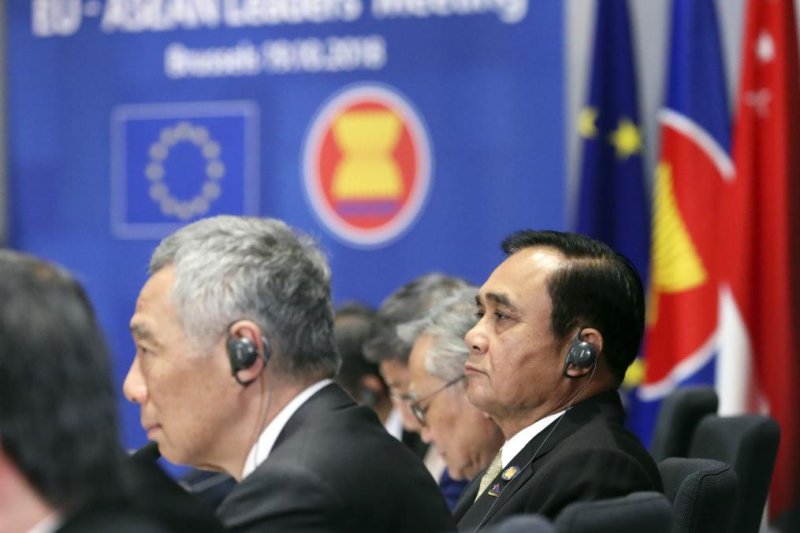ASEAN leaders, including Singapore Prime Minister Lee Hsien Loong (L) and Thailand Prime Minister Prayut Chan-o-cha (R), are expected to meet in Singapore next week. File Photo by Olivier Hoslet/EPA-EFE
Nov. 7 (UPI) -- Leaders in Southeast Asia are concerned about Chinese expansion in the South China Sea, according to a Japanese press report.
A document issued under the name of the ASEAN chair NHK obtained Wednesday includes a statement expressing concern over the construction of a Chinese stronghold in the South China Sea.
Activities including the completion of artificial islands in the South China Sea are "undermining mutual trust and regional peace and stability," the document read, according to NHK.
The expression of concern was not included in the statement issued at last year's summit, when the Philippines chaired the meeting.
The 33rd annual ASEAN summit takes place next week in Singapore.
The draft statement also said "negotiations are under way" for the establishment of rules to prevent disputes in the South China Sea.
Other statements in the draft addressed the issue of regional trade, which suffered setbacks following the U.S. withdrawal from the Trans-Pacific Partnership in 2017.
The 11 remaining member states of TPP have renamed themselves the Comprehensive Progressive Trans-Pacific Partnership, signed in March. The deal is to go into effect starting Dec. 30.
Another deal, the Regional Comprehensive Economic Partnership, is "poised to make large contributions to Asian and global economic cooperation," according to analysis from The Brookings Institution this week.
The ASEAN draft statement said it "welcomes" RCEP and cooperation among member countries that include India, China, Japan and South Korea.
RCEP is an "ASEAN-centric" free trade agreement, according to Brookings, and will cover 3.6 billion people with a GDP of $25 trillion.
Disagreements over issues such as India's demand for freer movements of its temporary workers have delayed ratification of RCEP, according to the analysts.















